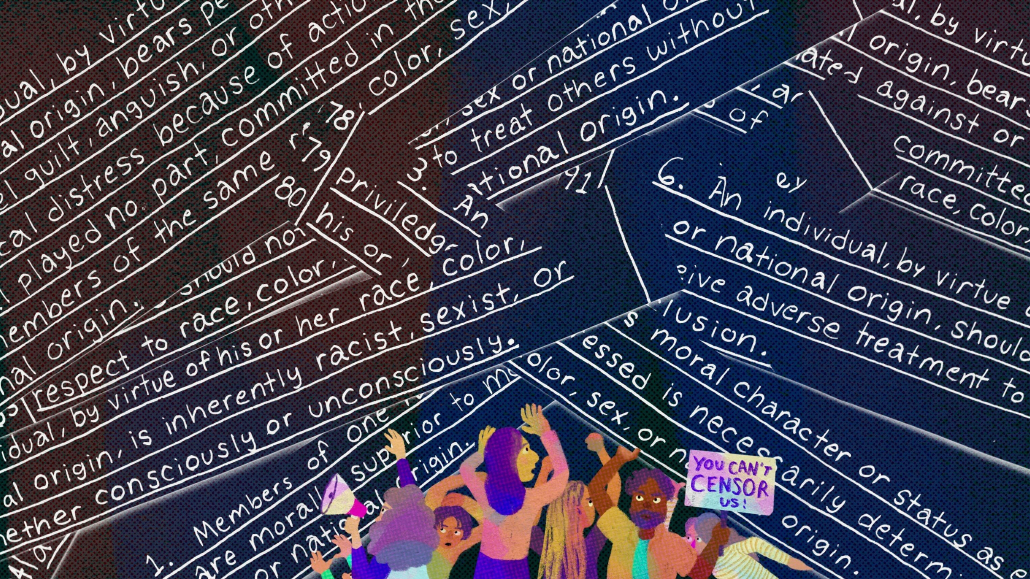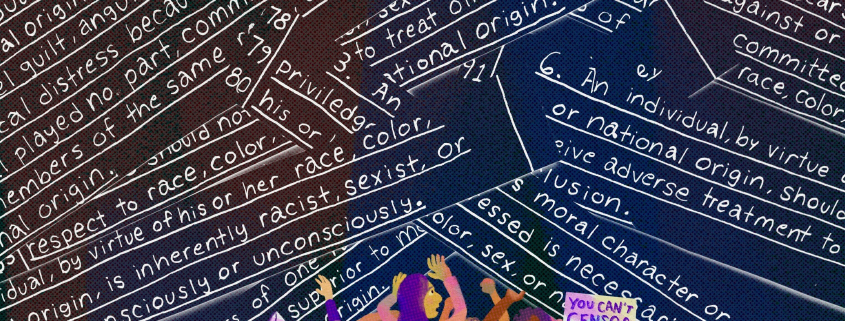Florida is on the path of statewide censorship

It seems that Florida hasn’t been able to keep itself out of headlines over the last few months. We’ve all heard the jokes about the typical “Florida Man” who finds himself on the front page of every newspaper and in the mouth of every radio show host for doing something incredibly foolish or remarkably terrible. However, as a born and raised Floridian, I never thought our governor — Ron DeSantis — would become the new “Florida Man.” Or even worse, that he would force Florida to the state it’s in now.
DeSantis has made a few questionable choices throughout his term as governor. Recently, he pushed for Floridian legislation to join him in removing what he describes as “woke indoctrination” in public schools. This includes, but is not limited to, race and gender. Just last year, Gov. DeSantis signed a bill into law known as the Stop W.O.K.E. Act, which prohibits certain race-based teachings in the classroom that could hint at Critical Race Theory, the idea that racial bias is inherent in Western society because Western society was created by and for white people.
But it didn’t stop there. Florida House Bill 999 — also known as the Public Postsecondary Educational Institutions — would ban colleges from funding or backing any programs or campus activities that espouse D.E.I. Although House Bill 999 has yet to pass either branch of Florida’s Congress, on April 18, the Postsecondary Education and Workforce Subcommittee favorably received the bill and voted to advance it.
House Bill 999 could ban majors focusing on identity, women’s history or intersectionality. And if that wasn’t bad enough, the bill also pushes the rewriting of universities’ mission statements.
In an interview with The Chronicle of Higher Education, Irene Mulvey, president of the American Association of University Professors, stated, “Under HB 999, the state is dictating what can be taught and what can be learned and what must not be taught. This is positively incompatible with democracy.” Florida is fast-tracked to becoming a censored state, and this bill is just the beginning.
Beyond education, Gov. DeSantis, in a shocking turn of events at what he called a “roundtable discussion,” spoke about media defamation. Under the guise of media accountability, the Governor pushed for the modification of Florida’s current libel and defamation law. These new changes would presume that information from anonymous sources is false, and would remove the protections that allow journalists to keep the identity of sources private if they are sued. Former Director of the First Amendment Project Clay Calvert said in his interview with NBC News, “I don’t think it’s surprising at all that in Florida we would adopt this piece of legislation … many conservatives don’t like the mainstream media, or what they perceive to be the liberal media.” Despite the fears that this new bill could result in media censorship and violations of the First Amendment, the Civil Justice Subcommittee voted to advance the bill.
Gov. DeSantis is expected to challenge Donald Trump for the GOP nomination for president in 2024, which could explain his rise in conservative politics. House Bill 991 solidifies his combative stance against the media, especially in his portrayal of journalists and media outlets who, in his view, lack accountability. DeSantis has framed the push for “media accountability” as wanting to “stand up for the little guy against these massive media conglomerates.” But when it comes to the Governor of Florida versus a media outlet, who is the little guy in this situation?
Gov. DeSantis’s views and the changes he wishes to implement in Florida are short-sighted and dangerous. His constant tactic of testing his boundaries to overturn long-standing precedents will cause a domino effect in personal and academic freedoms that set the state of Florida on a path of regression instead of progress.

